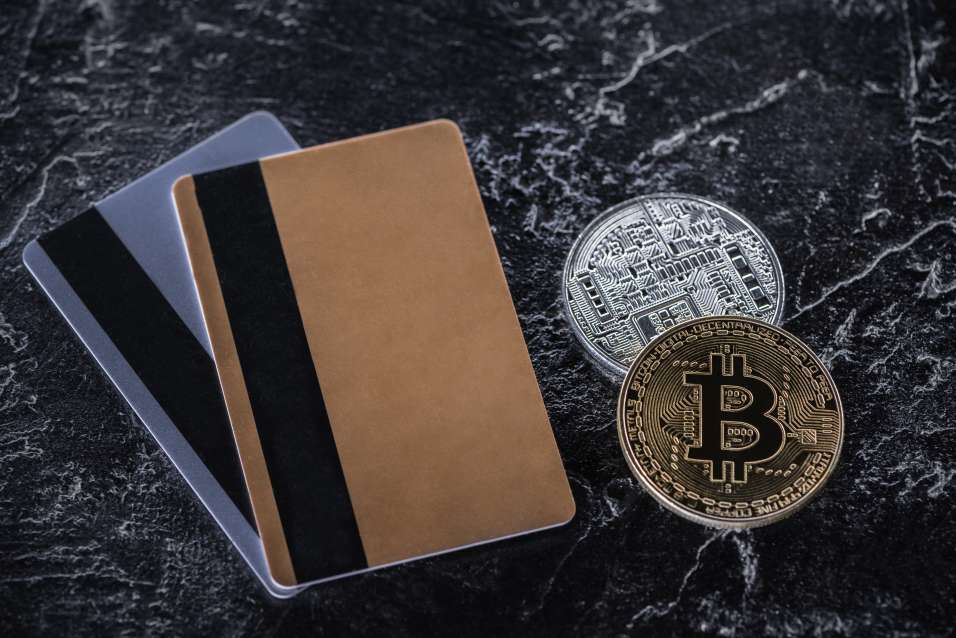Understanding the Difference Between Cryptocurrency Exchanges and Wallets

As the popularity of cryptocurrencies continues to rise, understanding the difference between a cryptocurrency exchange and a cryptocurrency wallet is crucial for both beginners and experienced users. While both crypto exchanges and wallets play essential roles in managing digital assets, they serve entirely different purposes.
Choosing the right platform for your needs depends on factors such as security, accessibility, and control over private keys. Some users prioritize convenience and prefer keeping their funds on an exchange, while others opt for self-custody by storing their assets in a private wallet. Understanding the key differences between these two options is essential to making informed decisions and ensuring the safety of your crypto holdings.

A Deep Dive Into Cryptocurrency Exchange
A cryptocurrency exchange is an online platform where users can buy, sell, and trade digital assets such as Bitcoin, Ethereum, and other cryptocurrencies. These exchanges act as intermediaries, connecting buyers and sellers while providing liquidity for the market.
Users can deposit fiat currency from their bank account or transfer crypto from a crypto wallet address to start trading. Some exchanges also offer advanced features like margin trading, futures contracts, and staking rewards.
Using Cryptocurrency Exchange for Buying, Selling, and Trading
Cryptocurrency exchanges facilitate crypto transactions, allowing users to:
- Buy Crypto – Users can deposit fiat money (USD, EUR, etc.) via a bank account or credit/debit card to purchase cryptocurrencies.
- Sell Crypto – Users can sell their digital assets for fiat or another cryptocurrency.
- Trade Crypto – Users can trade crypto assets through different trading pairs (e.g., BTC/USDT, ETH/BTC) based on market prices.
Using an exchange requires creating an exchange account, verifying identity (KYC for regulated exchanges), and securing funds through hot wallets or cold wallets.
Centralized Exchange vs. Decentralized Exchange
Cryptocurrency exchanges fall into two categories:
Centralized Exchanges (CEX)
A centralized exchange is operated by a company that acts as a central authority to manage transactions. Examples include Binance, Coinbase, and Kraken. These platforms provide user-friendly interfaces, fiat currency deposits, and customer support but require users to trust the platform with their private keys. Security risks include hacking incidents and potential security breaches.
Decentralized Exchanges (DEX)
A decentralized exchange functions without a central authority, enabling users to trade directly through smart contracts on a blockchain. Examples include Uniswap, PancakeSwap, and SushiSwap. Users retain control of their funds in self-custody wallets, enhancing crypto storage security.
Operations of Cryptocurrency Wallets
A cryptocurrency wallet is a secure tool for storing, sending, and receiving digital assets such as Bitcoin, Ethereum, and other cryptocurrencies. Instead of holding physical currency like a bank account, it stores private keys that grant access to and control over funds recorded on the blockchain.
There are different types of crypto wallets, including hot wallets, cold wallets, and hardware wallets. These wallets generate a wallet address (public key) that enables users to receive crypto and a private key that ensures security and ownership. Losing access to private keys can result in a complete loss of funds, emphasizing the importance of secure storage.
Hot Wallets vs. Cold Wallets
Cryptocurrency wallets are classified into hot wallets and cold wallets, each offering different levels of security and convenience.
Hot Wallets: Online & Convenient
A hot wallet or a software wallet is connected to the internet, making it accessible via a computer or mobile device. Popular choices such as Suisse Bank's All-In-One Wallet make it largely convenient for business transactions.
Cold Wallets: Offline & Secure
A cold wallet stores private keys offline, making it immune to online attacks. These wallets are best suited for securely storing digital assets for the long term.

Key Differences Between a Cryptocurrency Exchange and a Wallet
A cryptocurrency exchange and a cryptocurrency wallet serve different purposes in the crypto ecosystem. While both work together in handling digital assets and facilitating transactions, they differ significantly in how they function, the level of security they provide, and how users interact with their crypto holdings.
Purpose and Functionality
A cryptocurrency exchange is primarily used for buying, selling, and trading cryptocurrencies. It functions as a marketplace where users can trade crypto assets, swap between different cryptocurrencies, and even deposit fiat currency to purchase digital assets. Some exchanges also offer additional features like margin trading, futures contracts, and staking services.
A crypto wallet, on the other hand, is designed for securely storing and managing private keys for crypto assets. Wallets allow users to store private keys, send and receive funds, and manage their wallet address. Unlike an exchange, a wallet does not hold funds for trading but instead provides users with full ownership and control over their assets.
While exchanges provide trading convenience, they rely on wallets to enable deposits and withdrawals. Many centralized exchanges offer built-in wallets, but these do not give users control over their private keys. To fully own their assets, users must transfer funds to a personal, self-custody wallet.
Security and Control
Security is a major distinction between exchanges and wallets. Crypto exchanges store user funds on the platform, meaning that users must trust the exchange to keep their assets secure. While many exchanges implement two-factor authentication (2FA) and cold storage for a portion of funds, they remain vulnerable to security breaches, hacks, and even exchange collapses.
In contrast, crypto wallets—especially hardware wallets and self-custody wallets—give users full control over their private keys. Since wallets do not rely on a central authority, they offer a higher level of security. However, if a user loses access to their private keys, they risk losing their assets permanently, as there is no way to recover them through a third party.
While exchanges provide security measures for trading convenience, using a personal wallet adds an extra layer of protection. Many traders move their funds to self-custody wallets after trading to avoid the risks associated with storing crypto on exchanges.
Accessibility and Convenience
A crypto exchange offers greater convenience for users who frequently trade cryptocurrencies. Exchanges provide an easy-to-use interface, allow users to deposit fiat currency from a bank account, and enable quick transactions. However, exchanges typically require internet connectivity and account verification (KYC), making them less private.
A crypto wallet, particularly a cold wallet, prioritizes security over convenience. Hot wallets (like mobile wallets and web wallets) offer accessibility for everyday use, but cold wallets require additional steps to move funds. Paper wallets and hardware wallets store private keys offline, making them less susceptible to hacks but more difficult for immediate transactions.
For practical use, many users keep some funds in a hot wallet for quick access while storing larger amounts in a cold wallet for security. Exchanges act as a bridge between these wallets, allowing users to trade efficiently before withdrawing funds for safekeeping.
Ownership of Crypto Assets
A crucial difference between an exchange and a wallet is who owns the crypto assets. When storing funds on an exchange, users technically do not own their crypto—the exchange does. This is often summed up in the phrase, "Not your keys, not your coins." If an exchange goes bankrupt or is hacked, users can lose access to their funds.
With a crypto wallet, the user has full ownership of their assets. Self-custody wallets ensure that only the user has access to their private keys, giving them full control over their funds. However, this also means they are solely responsible for securing their assets, as there is no recovery option if they lose their crypto wallet address or private keys.
Since wallets give users complete control, many traders move their crypto from exchanges to personal wallets after trading. This way, they can take advantage of exchange features while still maintaining full ownership of their assets.

Frequently Asked Questions About Crypto Exchange and Crypto Wallet
What is the difference between a crypto wallet and exchange?
A crypto exchange is a platform that facilitates the buying, selling, and trading of cryptocurrencies. It operates as a marketplace where users can exchange digital assets and often includes features like price listings and trading pairs.
In contrast, a crypto wallet is a tool designed for the secure storage and management of cryptocurrencies. Wallets allow users to store their private keys, send and receive cryptocurrencies, and monitor their balances.
Is it better to keep crypto in exchange or wallet?
Storing cryptocurrencies on an exchange offers convenience, especially for active traders, as it allows for quick transactions and easy access to trading features. Using a personal crypto wallet, particularly a hardware wallet, enhances security by giving users full control over their private keys and keeping them offline, away from potential online threats.
Can I use both an exchange and a wallet?
Yes! Many crypto users keep a portion of their assets on an exchange for trading while storing the rest in a wallet for security. This provides a balance between convenience and protection.
What is the difference between currency exchange and crypto?
A currency exchange typically refers to a financial institution or platform where individuals can exchange one form of fiat currency (like USD, EUR, or JPY) for another. A crypto exchange, however, is a digital platform that facilitates the trading of cryptocurrencies. Users can buy, sell, and trade various digital assets, such as Bitcoin, Ethereum, and other altcoins.
A Secure Storage for Your Digital Assets
Understanding the difference between a cryptocurrency exchange and a cryptocurrency wallet is essential for anyone navigating the world of digital assets. While crypto exchanges provide a convenient platform for buying, selling, and trading, they require users to trust a third party with their funds. In contrast, crypto wallets offer secure storage and full control over private keys, making them ideal for long-term holdings.
At Suisse Bank, we provide secure and reliable solutions for cryptocurrency storage and trading. Whether you’re looking to trade crypto assets on a trusted platform or need a secure wallet for long-term storage, we offer seamless services tailored to your needs.
Take control of your crypto investments with Suisse Bank. Visit our website to explore all our services today or become our client and enjoy seamless crypto transactions.

